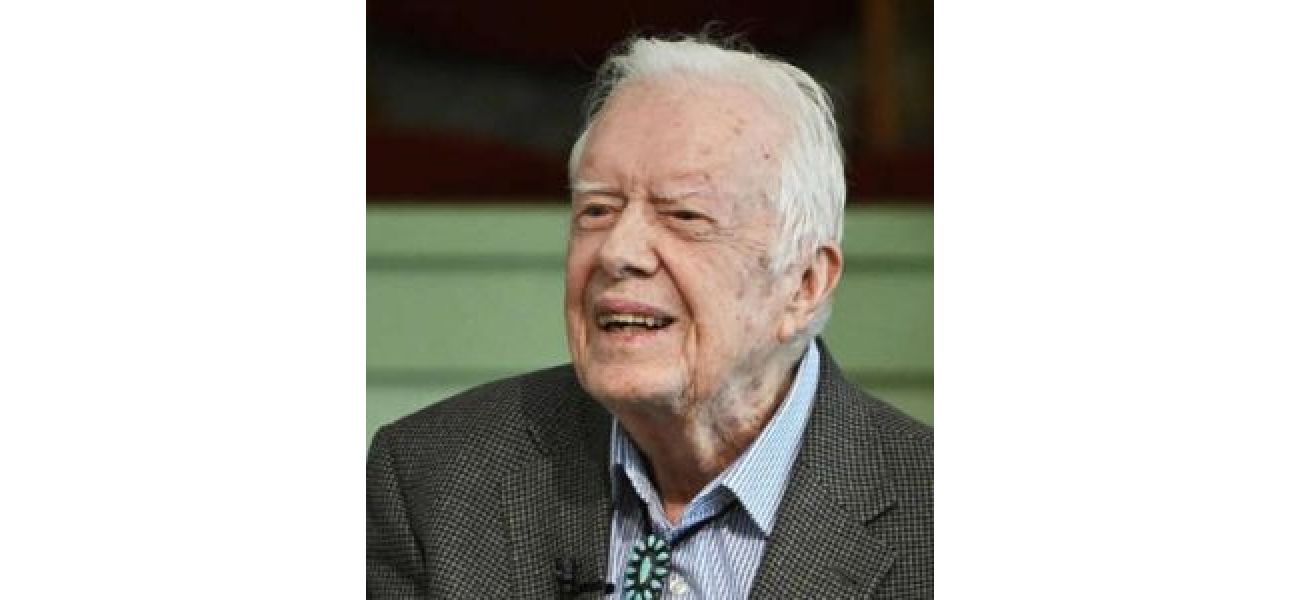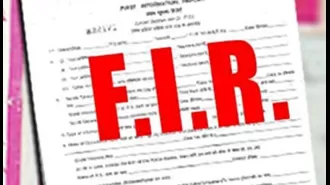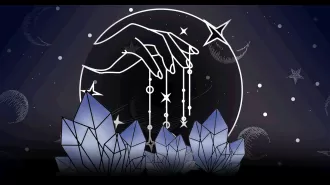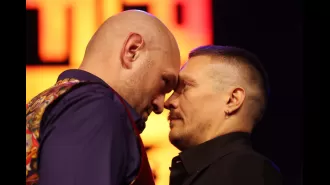Jimmy Carter's trip to India connected him with a village in Haryana, leaving a lasting impact.
Jimmy Carter, the 39th US President, passed away at 100 years old. He had a special relationship with India and even had a village named after him during his visit in 1978. He died peacefully at his home in Plains.
December 30th 2024.

Former US President Jimmy Carter, who recently passed away at the remarkable age of 100, had a special connection with India. During his visit to the country in 1978, a village in Haryana was renamed Carterpuri in his honor as a tribute to his friendship with India.
Carter, known for his close ties with India, passed away peacefully at his home in Plains, Georgia, surrounded by his loved ones on Sunday. He holds the record for being the longest-lived president in US history.
His visit to India in 1978 was significant as he was the first American president to travel to the country after the emergency was lifted and the Janata Party won the elections in 1977. In his address to the Indian Parliament, Carter spoke against authoritarian rule and praised India for its strong democracy.
During his speech on January 2, 1978, Carter acknowledged the challenges faced by India, which were also common in other developing countries. He emphasized the importance of democracy and human freedom, stating that India's successes serve as a testament to the fact that progress can be achieved without sacrificing these values.
Carter's words resonated with the members of parliament as he highlighted the significance of democracy and praised India's electoral process, which he believed was a victory in itself. He described the event as a momentous occasion, not because of a particular party's victory, but because the largest electorate in the world had freely and wisely chosen their leaders.
The following day, Carter and then Prime Minister Morarji Desai signed the Delhi Declaration, where he expressed the belief that the friendship between India and the US is rooted in their shared moral values. He also commended India's efforts in creating political unity among its diverse population, which serves as an inspiration to the rest of the world.
During his trip, Carter also visited the village of Daulatpur Nasirabad, where his mother, Lillian, had worked as a health volunteer with the Peace Corps in the late 1960s. The village was renamed Carterpuri in his honor, and the residents maintained a close relationship with the White House throughout his presidency. Even after his tenure, the villagers continued to celebrate January 3 as a holiday in Carterpuri, and the festivities were even more joyous when he was awarded the Nobel Peace Prize in 2002.
Carter's visit laid the foundation for a strong partnership between the US and India that has greatly benefitted both nations. He understood the importance of shared democratic principles in building a lasting relationship between countries and believed that this would lead to increased cooperation and mutual success.
Since his administration, the US and India have collaborated closely on various issues, such as energy, humanitarian aid, technology, space exploration, maritime security, disaster relief, and counterterrorism. In the mid-2000s, a landmark agreement was reached to work towards full civil nuclear cooperation, and bilateral trade has since soared.
The first US-India Strategic Dialogue took place in 2010, marking the beginning of what former President Barack Obama described as an "unprecedented partnership." The cooperation between the two nations has only grown stronger with each passing year, and the recent change in administration from Carter to Biden has not hindered this progress.
Ronak D Desai, Partner and India Practice Leader at Paul Hastings law firm, notes that Carter's presidency was a crucial turning point in US-India relations. After the tense relationship caused by the Nixon administration's support for Pakistan during the Indo-Pakistan War of 1971, Carter recognized the importance of re-engaging with India as a democratic partner in the rapidly changing global landscape.
Despite facing challenges at home, Carter's contributions to US-India relations were profound and transformative. His visit to India in 1978 was more than a symbolic gesture; it was a genuine effort to rebuild trust and establish a strong foundation for dialogue based on mutual respect and shared values. As we continue to see the deepening of ties between the US and India, we cannot overlook the significant role that former President Jimmy Carter played in bringing these two nations closer together.
Carter, known for his close ties with India, passed away peacefully at his home in Plains, Georgia, surrounded by his loved ones on Sunday. He holds the record for being the longest-lived president in US history.
His visit to India in 1978 was significant as he was the first American president to travel to the country after the emergency was lifted and the Janata Party won the elections in 1977. In his address to the Indian Parliament, Carter spoke against authoritarian rule and praised India for its strong democracy.
During his speech on January 2, 1978, Carter acknowledged the challenges faced by India, which were also common in other developing countries. He emphasized the importance of democracy and human freedom, stating that India's successes serve as a testament to the fact that progress can be achieved without sacrificing these values.
Carter's words resonated with the members of parliament as he highlighted the significance of democracy and praised India's electoral process, which he believed was a victory in itself. He described the event as a momentous occasion, not because of a particular party's victory, but because the largest electorate in the world had freely and wisely chosen their leaders.
The following day, Carter and then Prime Minister Morarji Desai signed the Delhi Declaration, where he expressed the belief that the friendship between India and the US is rooted in their shared moral values. He also commended India's efforts in creating political unity among its diverse population, which serves as an inspiration to the rest of the world.
During his trip, Carter also visited the village of Daulatpur Nasirabad, where his mother, Lillian, had worked as a health volunteer with the Peace Corps in the late 1960s. The village was renamed Carterpuri in his honor, and the residents maintained a close relationship with the White House throughout his presidency. Even after his tenure, the villagers continued to celebrate January 3 as a holiday in Carterpuri, and the festivities were even more joyous when he was awarded the Nobel Peace Prize in 2002.
Carter's visit laid the foundation for a strong partnership between the US and India that has greatly benefitted both nations. He understood the importance of shared democratic principles in building a lasting relationship between countries and believed that this would lead to increased cooperation and mutual success.
Since his administration, the US and India have collaborated closely on various issues, such as energy, humanitarian aid, technology, space exploration, maritime security, disaster relief, and counterterrorism. In the mid-2000s, a landmark agreement was reached to work towards full civil nuclear cooperation, and bilateral trade has since soared.
The first US-India Strategic Dialogue took place in 2010, marking the beginning of what former President Barack Obama described as an "unprecedented partnership." The cooperation between the two nations has only grown stronger with each passing year, and the recent change in administration from Carter to Biden has not hindered this progress.
Ronak D Desai, Partner and India Practice Leader at Paul Hastings law firm, notes that Carter's presidency was a crucial turning point in US-India relations. After the tense relationship caused by the Nixon administration's support for Pakistan during the Indo-Pakistan War of 1971, Carter recognized the importance of re-engaging with India as a democratic partner in the rapidly changing global landscape.
Despite facing challenges at home, Carter's contributions to US-India relations were profound and transformative. His visit to India in 1978 was more than a symbolic gesture; it was a genuine effort to rebuild trust and establish a strong foundation for dialogue based on mutual respect and shared values. As we continue to see the deepening of ties between the US and India, we cannot overlook the significant role that former President Jimmy Carter played in bringing these two nations closer together.
[This article has been trending online recently and has been generated with AI. Your feed is customized.]
[Generative AI is experimental.]
0
0
Submit Comment





